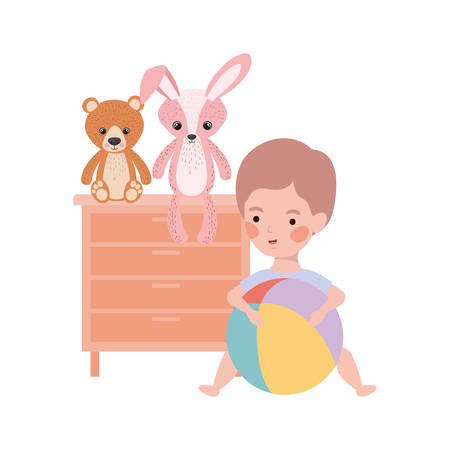Understanding the Role of a Health Visitor
If you’re a new parent in the UK, you’ll quickly come across a friendly professional called a Health Visitor. But what exactly do they do? Health Visitors are qualified nurses or midwives with specialist training in family and community health. Their main goal is to support families with children under five—especially newborns—and help give little ones the healthiest possible start in life.
Health Visitors work closely with parents, offering practical advice on everything from feeding and sleep routines to child development and emotional wellbeing. What’s unique about their service is that they visit you at home, which makes things much less stressful when you’re still getting used to life with your new baby. They also run local clinics and can be contacted by phone if you have any worries between visits.
Here’s a quick look at how Health Visitors typically support families:
Service |
How It Helps New Parents |
|---|---|
| Home Visits | Personalised guidance on newborn care, feeding, and growth checks in your own home. |
| Child Development Checks | Regular assessments to make sure your baby is meeting key milestones. |
| Parent Support | A listening ear for worries about sleep, feeding, or adjusting to parenthood. |
| Community Clinics | Drop-in sessions where you can ask questions or get your baby weighed. |
| Signposting Services | Referrals to specialists if extra help or advice is needed (e.g., breastfeeding support or postnatal mental health services). |
The advice Health Visitors provide isn’t just based on medical knowledge; it’s shaped by years of working with local families. That means it’s practical, realistic, and tailored for British family life—whether you live in bustling London or a quiet Cotswold village. As a new dad myself, I found their tips reassuring and genuinely useful, especially during those first few weeks when everything felt so new. No wonder so many UK parents value their Health Visitor’s advice as an essential part of their parenting toolkit!
Essential Feeding and Sleeping Guidance
As a new dad in the UK, I quickly learned that feeding and sleeping are at the heart of newborn wellbeing – and this is where Health Visitors truly shine with their practical advice. Whether you’re going down the breastfeeding route, using formula, or even a bit of both, Health Visitors offer tailored guidance to help you set up a healthy routine that works for your family. They’ll show you how to recognise your baby’s hunger cues (not always as obvious as you’d think!) and support you through latch issues or choosing the right bottle and formula if needed. Here’s a quick breakdown of common feeding options and what Health Visitors typically recommend:
| Feeding Method | Top Tips from Health Visitors |
|---|---|
| Breastfeeding | Ensure a good latch, feed on demand, stay hydrated, seek support for sore nipples or low milk supply. |
| Formula Feeding | Sterilise bottles properly, prepare feeds safely, follow recommended amounts on packaging, watch for signs of allergies. |
| Combination Feeding | Maintain consistency in timing, monitor baby’s weight gain, ask for advice if switching between breast and bottle feels tricky. |
When it comes to sleep (the holy grail for us new parents), Health Visitors are all about safe sleep practices and realistic expectations. They explained to us that newborns rarely sleep through the night straight away—those tales are mostly myths! Instead, they helped us set up a safe sleeping environment following the NHS guidelines: always place baby on their back, use a firm mattress, and keep the cot clear of loose bedding or toys. Here’s what they suggested for managing those unpredictable sleep patterns:
- Create a calming bedtime routine—bath, story, dim lights—even if baby is tiny.
- Keep night-time feeds calm and quiet to help your little one learn the difference between day and night.
- If your baby wakes often (most do!), try not to stress—Health Visitors can suggest gentle settling techniques tailored to your family.
Facing challenges like colic, reflux, or cluster feeding? Don’t be shy about asking your Health Visitor—they’ve seen it all before and can recommend practical solutions or connect you with local support groups. Their advice made me feel less alone during those exhausting early weeks. By following their guidance on feeding and sleep routines, we found life as new parents just that little bit easier—and our baby happier too.
![]()
3. Tracking Growth and Development Milestones
If you’re anything like me, as a new dad, it’s easy to get lost in the sea of baby milestones and worry whether your little one is on track. That’s where health visitors really shine. In the UK, they’re your go-to experts for tracking your baby’s growth and development — and trust me, their advice has saved me from many sleepless nights!
Understanding the Red Book (Personal Child Health Record)
Every new parent in the UK gets handed a little treasure: the Red Book. This handy record keeps track of everything from weight and height to immunisations and developmental checks. Health visitors are brilliant at showing you how to use it properly. During our first visit, our health visitor patiently explained each section, so I knew exactly what those growth charts meant (no more guessing if my son was too chubby or not gaining enough!).
How Health Visitors Support You with Growth Monitoring
| What They Do | Why It Matters |
|---|---|
| Regular weigh-ins & measurements | Spot early signs of feeding or growth issues |
| Explaining percentiles in the Red Book | Helps you understand what’s “normal” for your child |
| Answering questions about feeding & sleeping patterns | Tackles common worries before they become problems |
| Providing leaflets & local resources | Gives practical support tailored to your area (from breastfeeding cafes to baby groups) |
Recognising When to Seek Extra Support
Let’s be honest — sometimes things don’t go as smoothly as we’d like. If your baby isn’t following their expected growth curve, or if you notice delays in smiling, rolling, or sitting up, health visitors are there to help. They’ll let you know when it’s just a normal variation and when it might be time to see your GP or a specialist.
The best bit? You’re never alone. Every step of the way, from that first weigh-in at the clinic to later toddler check-ups, health visitors are only ever a phone call away. Their advice gave us peace of mind and made all those “Is this normal?” moments much less stressful!
4. Promoting Parental Wellbeing
As a new dad myself, I quickly learned that taking care of a newborn isn’t just about feeds and nappy changes – it’s also about looking after your own mental health. In the UK, Health Visitors play a crucial role in supporting not just your baby, but you as parents too. Their advice goes beyond checking your little one’s weight or feeding routine; they’re trained to spot signs of parental stress, anxiety, or even postnatal depression, and they know exactly where to point you for help.
How Health Visitors Support Parental Wellbeing
When my partner and I felt overwhelmed in those first few weeks, our Health Visitor reassured us that feeling tired, emotional, or even anxious is completely normal. She offered practical tips on getting rest when possible (even if it’s just a quick nap while the baby sleeps), encouraged us to talk openly about how we were feeling, and reminded us not to put too much pressure on ourselves to get everything perfect.
Local Resources for Parental Support
Health Visitors are brilliant at connecting new mums and dads with local resources. Whether you need a support group, mental health counselling, or just someone to talk to, they have up-to-date info tailored to your area. Here’s a quick guide to some typical support options in the UK:
| Support Type | Example Resources |
|---|---|
| Peer Support Groups | NCT (National Childbirth Trust), Baby Cafés |
| Mental Health Services | IAPT (Improving Access to Psychological Therapies), local NHS talking therapies |
| Helplines | PANDAS Foundation, Mind UK, Samaritans |
| Online Forums & Apps | Mumsnet, DadPad app, Netmums |
A Personal Note
If you’re finding things tough, don’t hesitate to mention it during your Health Visitor check-ins. They genuinely want to help and will never judge you – after all, most of them are parents themselves! Reaching out can make a world of difference for both you and your baby’s wellbeing.
5. Practical Safety Tips for Newborns
As a new dad in the UK, I quickly realised that safety at home is just as crucial as nappy changes and night feeds. Health Visitors have been an absolute lifeline, offering clear advice rooted in British guidelines and years of experience. Here’s a breakdown of their top recommendations to help keep your newborn safe and sound, all tailored to our UK homes.
Safe Sleeping: The Gold Standard Advice
One thing Health Visitors never stop repeating is the importance of safe sleep. It’s all about reducing the risk of SIDS (Sudden Infant Death Syndrome) and giving you peace of mind at night.
| Do | Dont |
|---|---|
| Place baby on their back for every sleep | Let baby sleep on their front or side |
| Use a firm, flat mattress in a cot or Moses basket | Use soft bedding, pillows, or duvets |
| Keep the cot clear of toys and loose blankets | Co-sleep on sofas or armchairs (very risky!) |
| Room-share with baby for the first 6 months | Put baby to sleep in their own room before 6 months |
Home Safety: Baby-Proofing Essentials
UK homes are full of hidden hazards—Health Visitors taught me where to look! Start with these basics:
- Install stair gates at both the top and bottom of stairs before your little one starts crawling.
- Keep cleaning products and medicines locked away—never under the sink!
- Tie up blind cords and keep them out of reach to avoid strangulation risks.
- Fit smoke alarms on every floor and test them monthly (it’s a landlord requirement too).
Preventing Accidents: Everyday Tips from the Pros
I’ve learned that most accidents happen in a split second, especially when you’re sleep-deprived. Here are some simple but effective tips:
- Always check bath water temperature with your elbow—it should feel warm, not hot (about 37°C).
- Never leave your baby unattended on changing tables or beds, even for a moment.
- If bottle-feeding, check milk temperature by dripping it on your wrist first.
The Value of Regular Check-Ins
Your Health Visitor will often spot things you might miss—like gaps between cot bars or loose sockets. Don’t be shy about asking questions during visits; they genuinely want to help you create the safest environment possible for your new arrival.
6. When and How to Access Health Visitor Advice
Knowing when and how to reach out for Health Visitor advice can make a real difference in your baby’s wellbeing, especially for new parents navigating the early weeks. Here’s a clear, step-by-step guide to help you access the support you need across the UK.
Booking a Health Visitor Appointment
Most families in the UK are automatically referred to a Health Visitor shortly before or after their baby is born. Here’s how you can ensure you’re making the most of this service:
| Step | What To Do | Details |
|---|---|---|
| 1 | Receive Initial Contact | Your local Health Visiting team will usually contact you to arrange your first visit – often at home, within 10–14 days after birth. |
| 2 | Book Further Appointments | If you need extra support, call your GP surgery or local health centre. They’ll provide contact details for your Health Visitor team. |
| 3 | Use Online Services (if available) | Some NHS Trusts offer online booking systems or digital apps for arranging appointments or messaging your Health Visitor directly. |
Using Baby Clinics and Drop-in Sessions
Baby Clinics are fantastic resources, offering weigh-ins, developmental checks, and the chance to ask quick questions:
- Where: Local GP surgeries, Children’s Centres, or community halls.
- How: No appointment needed – check your local NHS website or Health Visitor leaflet for times and locations.
- What: Bring your Red Book (Personal Child Health Record) and any questions you’ve noted down.
What to Expect During a Health Visitor Visit
Your first few visits might feel daunting, but here’s what typically happens:
- Friendly Chat: The visit is informal. Your Health Visitor will listen to your concerns about feeding, sleep, or settling your newborn.
- Growth Checks: Baby’s weight and length may be measured, and milestones discussed.
- Practical Advice: You’ll get tailored tips on everything from safe sleeping to breastfeeding and postnatal mental health.
- No Judgement: It’s about supporting you as a family, not inspecting your home!
If You Need Urgent Advice
If you have immediate concerns about your baby’s health (high fever, persistent crying, feeding issues), ring NHS 111 or see your GP. For general support or reassurance between visits, many areas have dedicated Health Visitor phone lines during office hours.


